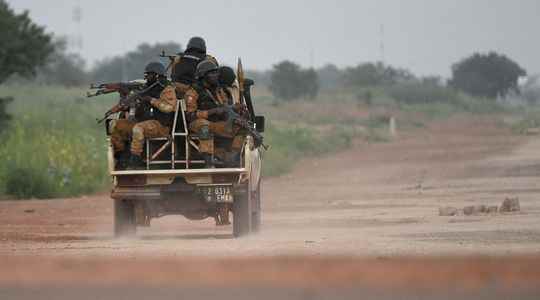Nafisatou*’s voice has died away. Three years she hasn’t sung. Before, she liked to hum the tunes of her village to her husband, at nightfall. But since her disappearance on May 5, 2019, this 43-year-old mother of five has been silent. That morning, Dramane* was “arrested” on the road and “taken” to the gendarmerie in Toéni, in the north-west of Burkina Faso. That’s all an officer could tell him on the phone. Why was her husband arrested? Nafisatou claims to know nothing about it. Perhaps, she suggests, because of her belonging to the Fulani community, regularly stigmatized for her alleged collaboration with the jihadists?
Like her, many Burkinabe families have lost track of their loved ones since the start of the terrorist attacks that have killed more than 2,000 people in six years. Difficult to distinguish, among these “volatilized”, the victims of assassinations and kidnappings perpetrated by the jihadists, cases of abusive detentions and summary executions attributed to the security forces.
In total, since 2019, the International Committee of the Red Cross (ICRC), which is trying to find these missing persons, has registered more than 800 search requests in the country. “Many individuals have been arrested during search operations in remote areas, most of the time they do not speak French, do not have identity cards and do not know the charges or the procedures, and find themselves lost in the loopholes of the justice system,” said Ousmane Diallo, West Africa researcher at Amnesty International. Some families try to carry out the investigation, but the task is laborious.
Mariam *, she looked everywhere for her 58-year-old husband, arrested three years ago while he was going to the market in their village, in the North West. According to the gendarmerie, he was “transferred” to the capital, Ouagadougou. This milk seller traveled more than 200 kilometers by bus to the high security prison (PHS), where most of the suspected terrorists are detained awaiting trial, then to the Ouagadougou remand center . Each time, she showed the guards the photo of her husband, searched the lists. In vain.
Justice overwhelmed
Suspects arrested in the context of anti-terrorist operations do not always have access to a telephone to notify their families. And for lack of resources, detainees rarely have a lawyer. According to several sources, some have been behind bars for several years without being able to reach their relatives.
Until she sees her husband’s body, Nafisatou wants to believe that he “is still alive, somewhere”. The last information she gleaned dates from 2019, three months after the arrest. A fellow prisoner who shared the same cell as her husband told her, once released, to have “seen the gendarmes taking her away with them one night”. His obsession? Summary execution. Since 2015, the NGO Human Rights Watch has documented more than 700 cases of people murdered by suspected members of the security forces. Often the bodies are abandoned along the roads, in fields or buried in mass graves.
These abuses, common in other Sahelian countries plagued by terrorism, reflect a double evil: on the one hand, the lack of internal control within the armies, on the other hand the failures of the criminal justice system as a whole, which lack of manpower and resources. Some soldiers, tired of arresting the same suspects several times released into the wild, take the law into their own hands. Quit killing innocent people.
“Very often, people are accused of complicity with terrorists on the simple basis of suspicion or denunciations”, deplores a lawyer on condition of anonymity, who notes that the files are often “empty”.
On the desks of the four investigating judges of the anti-terrorism unit, created in 2017, the batteries are growing day after day. Without access to the field – for security reasons – the investigations are stalled. In the meantime, the ghosts accumulate and with the distress of the families, the feeling of impunity sets in. “Many young people have joined armed groups after spending years in prison, without trial, or seeing their parents killed by the army,” warns a national from the northern town of Djibo. A most dangerous vicious circle to which the state seems powerless, on the verge of rupture. In Ouagadougou, rumors of coups d’etat are buzzing. Nine soldiers and three civilians suspected of having fomented a putsch have been behind bars since January 8.
*The names have been changed
